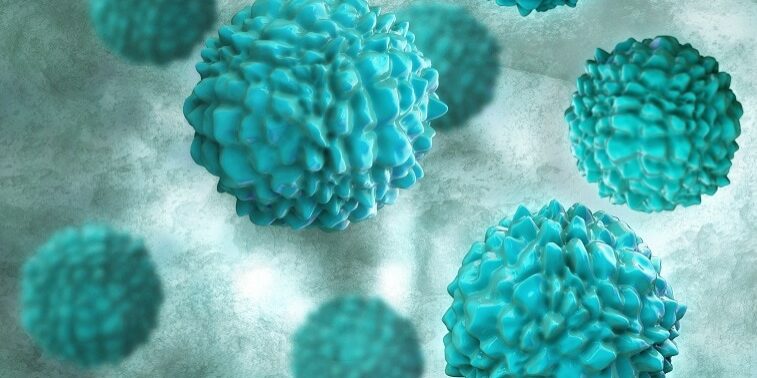Norovirus: Symptoms, Causes, Treatment
What are the symptoms of norovirus?
Norovirus is a highly contagious virus that causes gastroenteritis, an inflammation of the stomach and intestines. Symptoms of norovirus infection typically appear within 12 to 48 hours after exposure to the virus and can include:
- Nausea: Feeling queasy or having an upset stomach is one of the earliest symptoms of norovirus infection.
- Vomiting: Sudden and forceful vomiting may occur, sometimes without warning.
- Diarrhea: Watery or loose stools are common and may be accompanied by abdominal cramps.
- Stomach Pain: Abdominal cramps, discomfort, or pain may be present, often along with diarrhea.
- Low-grade Fever: Some individuals may experience a mild fever, typically below 100.4°F (38°C).
- Headache: Headaches are a common symptom of norovirus infection, often accompanied by other symptoms such as nausea and vomiting.
- Muscle Aches: Generalized muscle aches or body aches may occur, particularly in more severe cases.
- Fatigue: Feeling tired or lethargic is common, especially as the body tries to fight off the infection.
- Dehydration: Severe diarrhea and vomiting can lead to dehydration, which may cause symptoms such as dry mouth, decreased urine output, and lightheadedness.
- Loss of Appetite: Individuals with norovirus infection may lose their appetite or have difficulty eating due to nausea and stomach discomfort.
Symptoms of norovirus infection usually last for 1 to 3 days and resolve on their own without specific treatment in otherwise healthy individuals. However, norovirus can be more severe and potentially life-threatening in young children, older adults, and individuals with weakened immune systems. It’s important to stay hydrated and rest if you have norovirus symptoms and to practice good hygiene to prevent the spread of the virus to others.
What are the causes of norovirus infection?
Norovirus infection is caused by the norovirus, which is a highly contagious virus that affects the stomach and intestines. The virus is found in the stool and vomit of infected individuals and can spread easily from person to person. Some common causes and modes of transmission of norovirus infection include:
- Direct Contact: Touching surfaces or objects contaminated with norovirus and then touching your mouth, nose, or eyes can lead to infection.
- Consuming Contaminated Food or Water: Eating food or drinking water that has been contaminated with norovirus can cause infection. This can happen if food is prepared or handled by someone who is infected with the virus.
- Close Contact with Infected Individuals: Norovirus spreads easily in settings where people are in close contact with each other, such as schools, daycare centers, nursing homes, and cruise ships.
- Contaminated Surfaces: Norovirus can survive on surfaces for extended periods, so touching surfaces contaminated with the virus and then touching your face can lead to infection.
- Unhygienic Practices: Poor hygiene practices, such as not washing hands after using the bathroom or changing diapers, can contribute to the spread of norovirus.
- Airborne Transmission: Norovirus particles can become airborne when an infected person vomits, leading to inhalation and potential infection.
Norovirus is highly contagious and can spread rapidly in environments where people are in close proximity to each other. The virus can also survive for long periods on surfaces, making it important to practice good hygiene, such as washing hands regularly and thoroughly, especially after using the bathroom or handling food.
What is the treatment for a norovirus infection?
There is no specific treatment for norovirus infection, and the illness usually resolves on its own within 1 to 3 days. Treatment focuses on managing symptoms and preventing dehydration. Here are some general recommendations for managing norovirus infection:
- Stay Hydrated: Drink plenty of fluids, such as water, clear broth, or oral rehydration solutions, to prevent dehydration. Avoid beverages that are high in sugar or caffeine, as they can worsen dehydration.
- Rest: Get plenty of rest to help your body recover from the illness.
- Avoid Certain Foods: Avoid foods that are difficult to digest or may irritate the stomach, such as spicy or fatty foods.
- Medications: Over-the-counter medications such as anti-diarrheal drugs and anti-nausea medications may help relieve symptoms, but they should be used with caution and only under the guidance of a healthcare provider.
- Practice Good Hygiene: Wash your hands frequently with soap and water, especially after using the bathroom and before preparing or eating food. Disinfect contaminated surfaces and objects to prevent the spread of the virus.
- Isolation: If you have norovirus infection, it’s important to avoid close contact with others to prevent spreading the virus. Stay home from work, school, or other activities until at least 48 hours after symptoms have resolved.
In more severe cases, especially in young children, older adults, and individuals with weakened immune systems, medical attention may be needed to prevent dehydration. If you or someone you know is experiencing severe dehydration, persistent vomiting, bloody stools, or other concerning symptoms, seek medical attention promptly.




